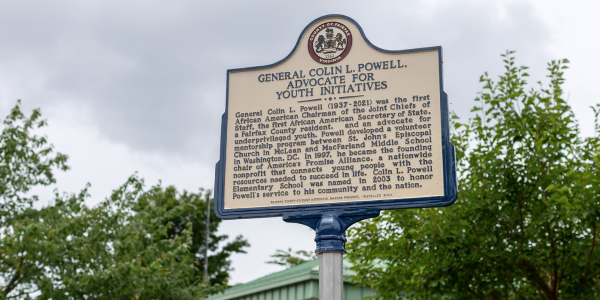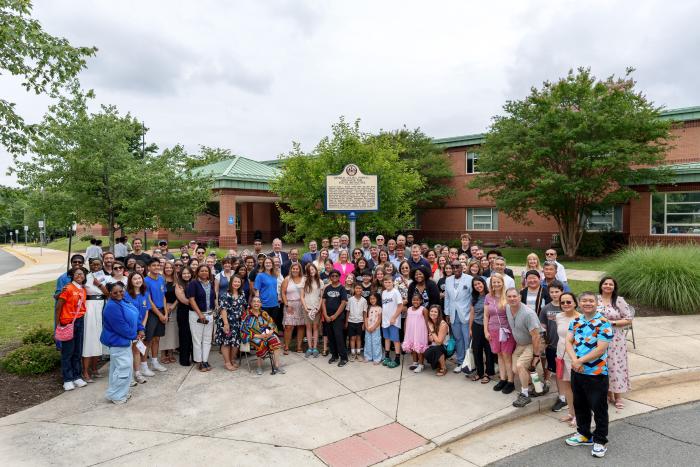
Students, educators, community members, and friends and family of General Colin L. Powell came together on Saturday, June 14, at Colin Powell Elementary School in Centreville to unveil a new historical marker honoring General Powell’s legacy as an advocate for youth initiatives, trailblazing military leader, statesman and longtime Fairfax County resident.
The dedication marks the fourth installation in the county’s Black/African American Historical Marker Project, an initiative established by the Board of Supervisors and Fairfax County Public Schools to ensure a more inclusive and comprehensive telling of the county’s history.
The new marker commemorates Powell’s extraordinary career as the first African American to serve as Chairman of the Joint Chiefs of Staff and U.S. Secretary of State. It also honors his deep commitment to public service and youth mentorship. A resident of Fairfax County for many years, Powell helped launch a volunteer mentorship program between St. John’s Episcopal Church in McLean and MacFarland Middle School in Washington, D.C. In 1997, he became the founding chair of America’s Promise Alliance, a national nonprofit dedicated to helping young people succeed.
The marker’s submission came from a 17-year-old Langley High School student and lifelong parishioner of St. John’s Episcopal Church, who remembered Powell as a kind and humble man who joyfully greeted parishioners. The student wrote that Powell deserved to be honored not only for his national service but also for the quiet, consistent way he showed up for his community.
The Black/African American Historical Marker Project was created in 2021 to highlight historically significant people, places and events that have shaped the Black experience in Fairfax County. It is a collaboration among the Fairfax County Board of Supervisors, Fairfax County Public Schools, the History Commission, the Department of Planning and Development and Neighborhood and Community Services. The initiative supports the county’s One Fairfax policy, which guides efforts to advance equity in all areas of public policy and community life.
For more information about the project and to read about previous markers, visit the Black/African American Historical Marker Project website.




 SIGN UP FOR DAILY EMAIL HEADLINES
SIGN UP FOR DAILY EMAIL HEADLINES